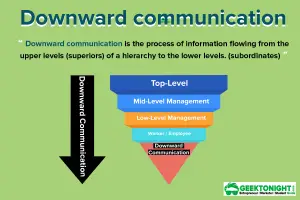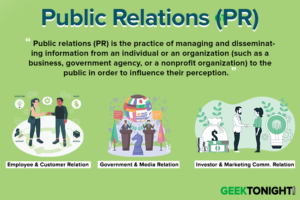What is Written Communication?
Written communication is communication by means of written symbols or sign that is communicated by or to or between people or groups.
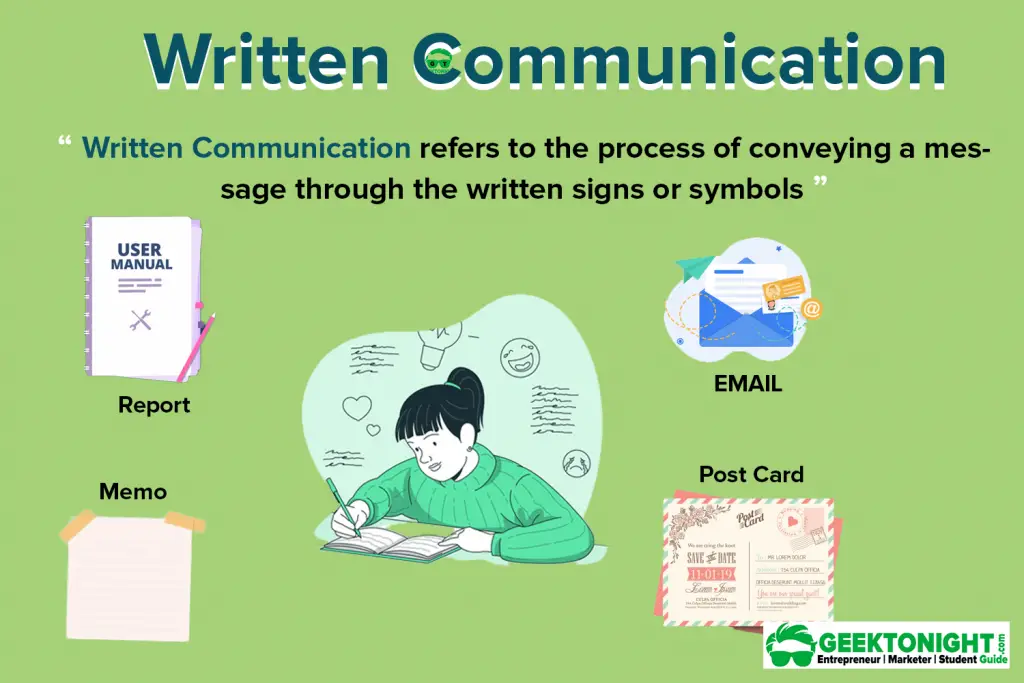
In written communication, a message can be transmitted via email, letter, report, memo, etc. The message, in written communication, is influenced by the vocabulary and grammar used, writing style, precision and clarity of the language used.
Table of Content
Written communication is the most common form of communication being used in business. So, it is believed core among business skills. Memos, reports, bulletins, job descriptions, employee manuals, and electronic mail are the types of written communication used for internal communication.
For communicating with the external environment in writing, electronic mail, Internet Websites, letters, proposals, telegrams, faxes, postcards, contracts, advertisements, brochures, and news releases are used.
In the written form, it may require the drafting of letters and circulars, proposals, memos and business reports of varying kinds and includes
- MemoReport
- Office order
- Circulars
- Graphs/Charts
- Staff Newsletter
- Form/Questionnaire
- Letter
- Notice, Agenda, Notes on Agenda
- Minutes of Meetings
- Advertisement
- Customer Newsletter
- Press Release
- Invitation
- Leaflet/Brochure/Handbills
- Manuals
Characteristics of Written Communication
Written communication is a creative activity. It needs creative facts. The creative facts are produced by a human mind. The main characteristics of a written communication are as follows:
- Written or Recorded
- Creative Activity
- Human Activity
- Language
- Permanent Record
- Legal Evidence
- Lengthy Process
- Accuracy
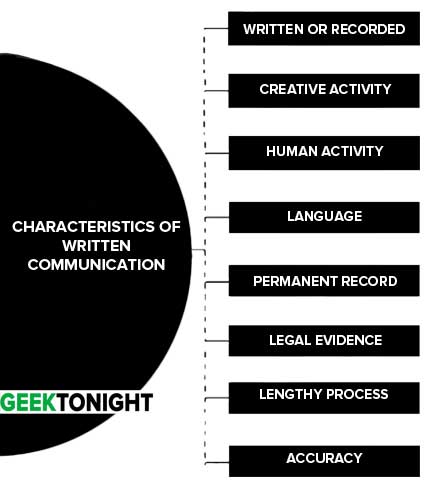
Written or Recorded
Written communication is an effective process of transferring a message. The sender writes the message in the form of a letter, report, chart, diagram, questionnaire and passes to the receiver.
Creative Activity
Written communication is a creative activity. All the creative activities are produced by the human mind.
Human Activity
Human-being can write or explain an idea, opinion and information in written form. Therefore, written communication is a human activity.
Language
Written communication can be expressed in a language. It may be Hindi, English, any code language, chart, figure etc. The selection of the language depends on the convenience of the sender and the receiver.
Permanent Record
Written communication has proof of evidence. It provides a permanent record for a future reference.
Legal Evidence
When the message is transferred through written communication, these are also used as legal evidence.
Lengthy Process
The process of written communication is very lengthy. The message is transferred in this process through several channels. Therefore, it takes more time.
Accuracy
Written messages are generally prepared in a peaceful environment. It is more effective for achieving future goals of an organization. Therefore, it is prepared by the sender with and accuracy.
Advantages of Written Communication
Written communication is one of the most extensively used modes of communication in most organisations. There are different forms of written communication that are primarily used to exchange information related to business operations, such as memos, reports, circulars, notices, manuals, e-mails, etc. Some of the benefits that written communication offers are as follows:
Some of the advantages of written communication are:
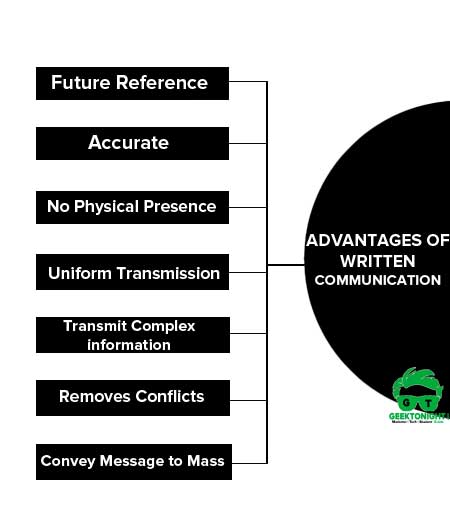
Can maintain records
Most written correspondence can be on record, such as information exchanged with stakeholders, minutes of meetings, mails, etc. Just imagine getting an oral appointment letter. Written documents provide a long-lasting record that can be used for future references.
Has legal validity
Written records provide legal authority, which can be used as proof of any information by organisations for any legal defence. E-mails, for instance, are the most inexpensive and quickest medium of written communication in cases where in-person communication is not possible.
Is accurate and dependable
Written communication is considered more accurate and reliable than oral communication because information exchanged cannot be changed unlike in the case of the latter.
Can be well drafted
Oral words can be spontaneous, unlike written communication which can be edited, modified and carefully articulated offering maximum clarity and accuracy of meaning.
Can be used to assign responsibility
It may not always be possible to communicate the work responsibilities to all employees in person. To take care of such situations, written communication can be used to effectively assign responsibilities.
Allows little chance of misunderstanding
In case the words to be written are carefully chosen and present the meaning precisely, there are very little chances of misunderstanding using written communication.
Allows editing and omissions
Written words can be edited or modified to suit the receiver before the message is sent across to the receivers.
Disadvantages of Written Communication
Some of the disadvantages of written communication are:
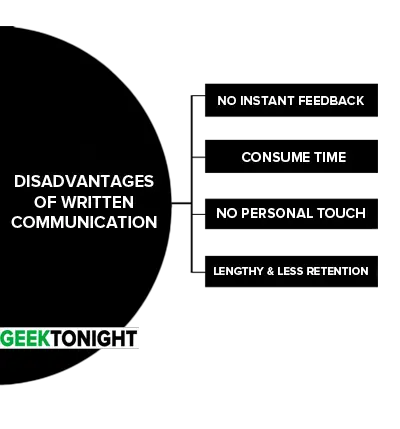
It is a time-taking medium
Written communication requires a lot of time. Putting one’s thoughts into words and formulation of the same is, of course, a time-consuming process, as proper structuring is required.
It uses too many resources
A large number of resources are wasted in an organisation on stationery and storage of files and records. Though the use of computers helps save or rather just cut down on some of these expenses, but still written communication costs a lot to organisations and also to the environment as the use of paper means cutting of trees.
It requires good writing skills
Proper grammatical knowledge of a language is required to communicate effectively. Written communication is constrained by grammar and handwriting if the message is not properly typed. Moreover, a poorly drafted message may lead to the loss of business for an organisation.
Purpose of Written Communication
Business letters are not in any way less vital than the blood circulation system in body when we talk and count it with reference to business activities. Needs for sending letter in business is felt for several purposes. Some of such purposes are as under.
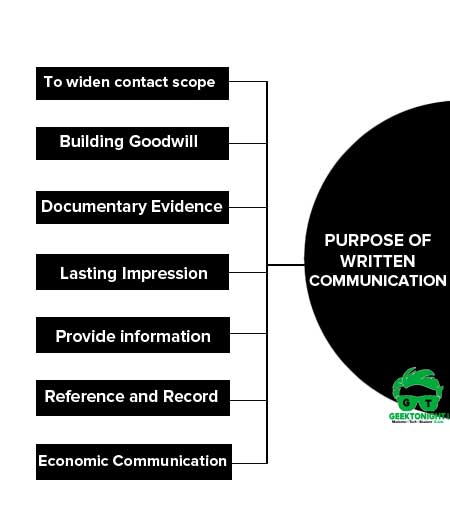
- To widen contact scope
- Building Goodwill
- Documentary Evidence
- Lasting Impression
- Provide information
- Reference and Record
- Economic Communication
To widen contact scope
As already mentioned told, several parties are contacted in business and it is not possible to contact with all parties concerned. Thus, letters are the means that extend the scope of business activities to the desired extent.
Building Goodwill
Letters contribute largely in building goodwill for a business and making friendly relations with concerned parties if these are written in influence manner. These act as an advertisement for building goodwill of the business concerned.
Documentary Evidence
Letters may be filed before a court as written evidence in the form of a business contract. Letters bear the signature of the authorised person. Hence, letters act as evidence in the course of deciding on liabilities.
Lasting Impression
As the letters are retained by the readers, these have a lasting impression on them. These are repeatedly read by readers unless a response is given. They are also remembered by them or make a niche for them in their memory.
Provide information
In business, several parties communicate one another on a number of topics or matters. Business letters with information written on them make such transactions of information very easy. Hence, letters are the most important medium in view of providing information.
Reference and Record
Everyone may agree that it is not possible to keep memory afresh every time in respect of the contracts executed, transaction made and the events taking place in the course of running the business. Letters, however, can easily be used as record for future references. These can use as a reference whenever such need is felt.
Economic Communication
Communication through letters is always economic as no extra cost is incurred in this mode sending information from one place to another. It is cheaper than personal contact with the parties.
Business Communication Notes
(Click on Topic to Read)
Reference
- Business Communication: “ K.K. Sinha, Golgotia Publishing Company.
- Dr K.C. Goyal, Dr Ummed Singh, Dr Kapil Dev, Business Communication.
- Essentials of Business Communication: Rajendra Pal, J.S Korlahalli, Sultan Chand & Sons.
Go On, Share & Help your Friend
Did we miss something in Business Communication Tutorial or You want something More? Come on! Tell us what you think about our post on Written Communication | Business Communication in the comments section and Share this post with your friends.
Business Communication Notes
(Click on Topic to Read)
- What is Business Communication?
- What is Communication?
- Types of Communication
- 7 C of Communication
- Barriers To Business Communication
- Oral Communication
- Types Of Non Verbal Communication
- What is Written Communication?
- What are Soft Skills?
- Interpersonal vs Intrapersonal communication
- Barriers to Communication
- Importance of Communication Skills
- Listening in Communication
- Causes of Miscommunication
- What is Johari Window?
- What is Presentation?
- Communication Styles
- Channels of Communication
- Hofstede’s Dimensions of Cultural Differences and Benett’s Stages of Intercultural Sensitivity
- Organisational Communication
- Horizontal Communication
- Grapevine Communication
- Downward Communication
- Verbal Communication Skills
- Upward Communication
- Flow of Communication
- What is Emotional Intelligence?
- What is Public Speaking?
- Upward vs Downward Communication
- Internal vs External Communication
- What is Group Discussion?
- What is Interview?
- What is Negotiation?
- What is Digital Communication?
- What is Letter Writing?
- Resume and Covering Letter
- What is Report Writing?
- What is Business Meeting?
- What is Public Relations?
Business Communication Notes
(Click on Topic to Read)
- What is Business Communication?
- What is Communication?
- Types of Communication
- 7 C of Communication
- Barriers To Business Communication
- Oral Communication
- Types Of Non Verbal Communication
- What is Written Communication?
- What are Soft Skills?
- Interpersonal vs Intrapersonal communication
- Barriers to Communication
- Importance of Communication Skills
- Listening in Communication
- Causes of Miscommunication
- What is Johari Window?
- What is Presentation?
- Communication Styles
- Channels of Communication
- Hofstede’s Dimensions of Cultural Differences and Benett’s Stages of Intercultural Sensitivity
- Organisational Communication
- Horizontal Communication
- Grapevine Communication
- Downward Communication
- Verbal Communication Skills
- Upward Communication
- Flow of Communication
- What is Emotional Intelligence?
- What is Public Speaking?
- Upward vs Downward Communication
- Internal vs External Communication
- What is Group Discussion?
- What is Interview?
- What is Negotiation?
- What is Digital Communication?
- What is Letter Writing?
- Resume and Covering Letter
- What is Report Writing?
- What is Business Meeting?
- What is Public Relations?


